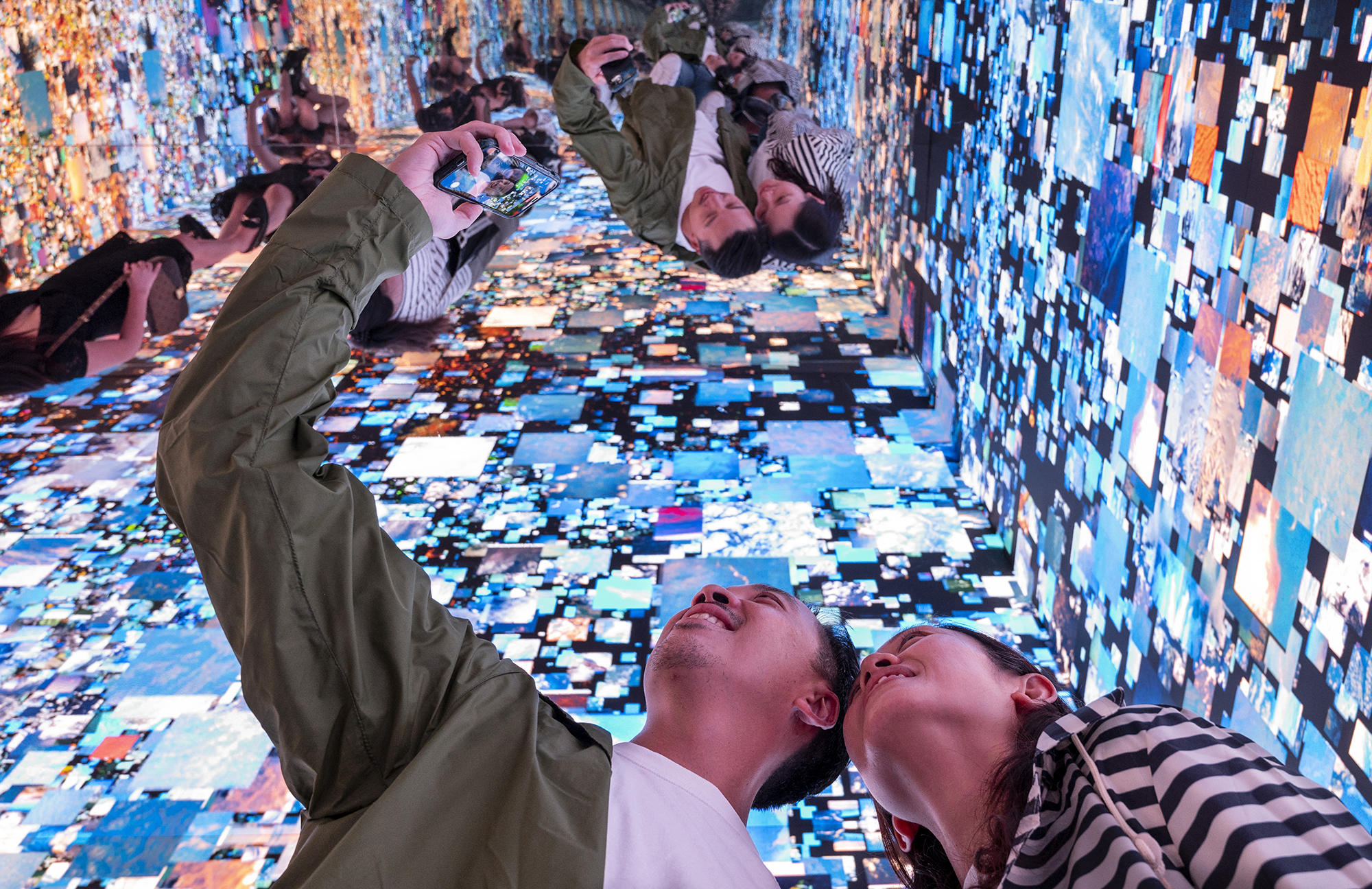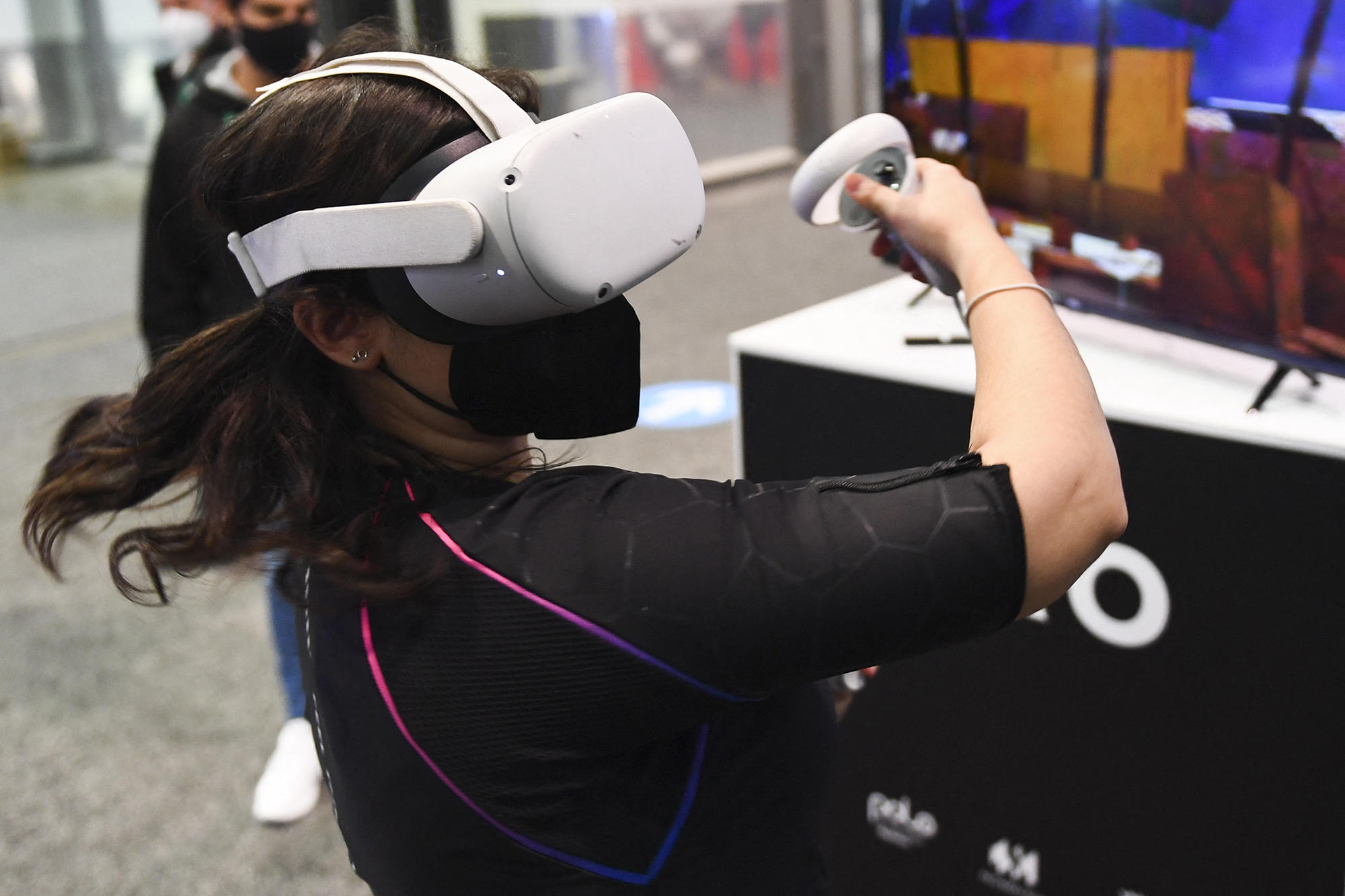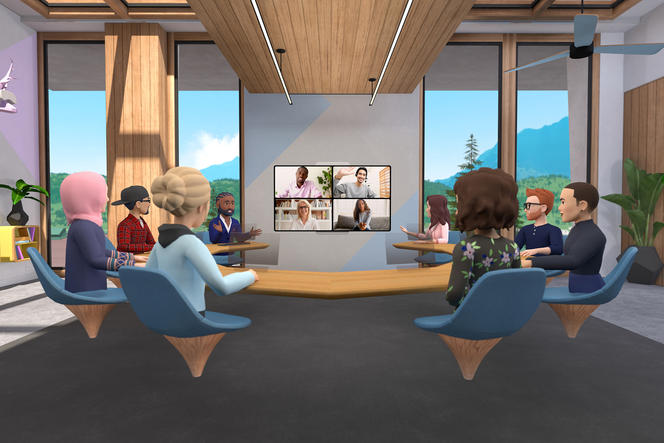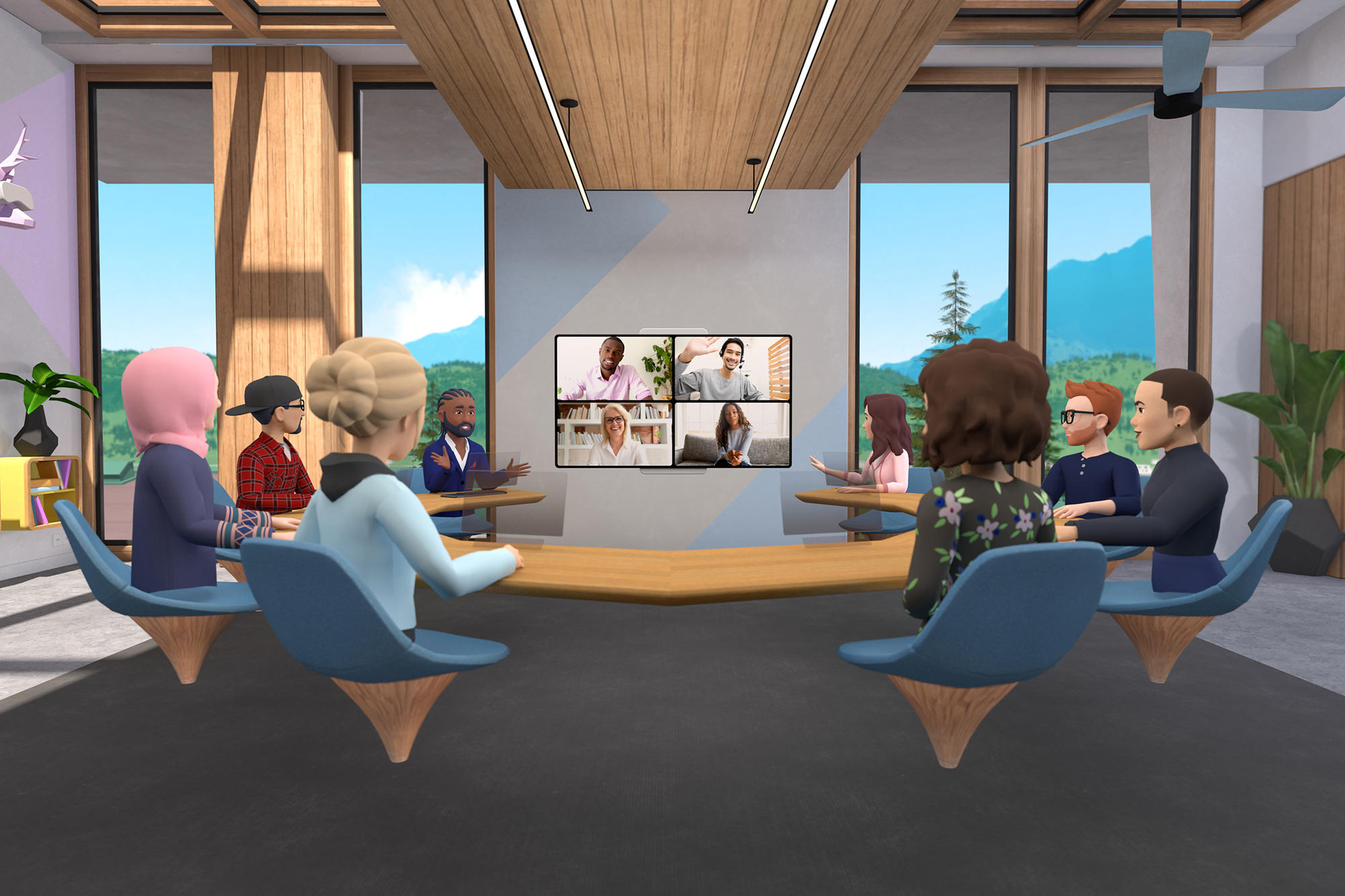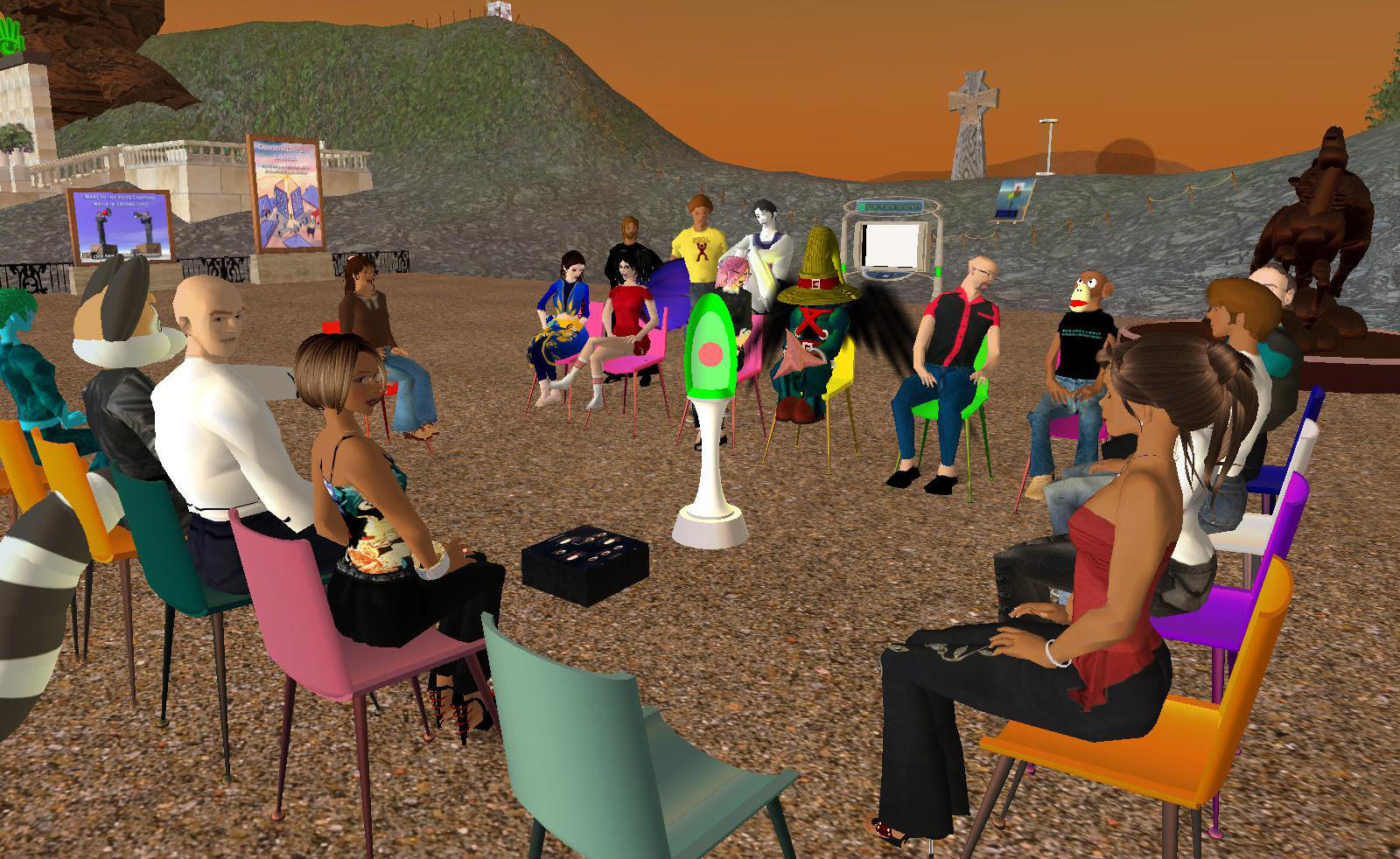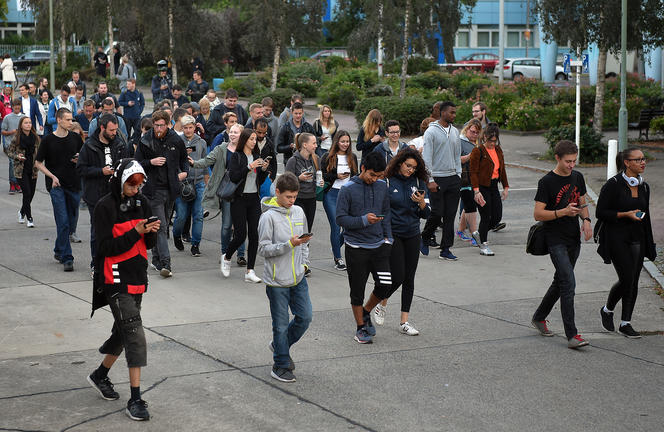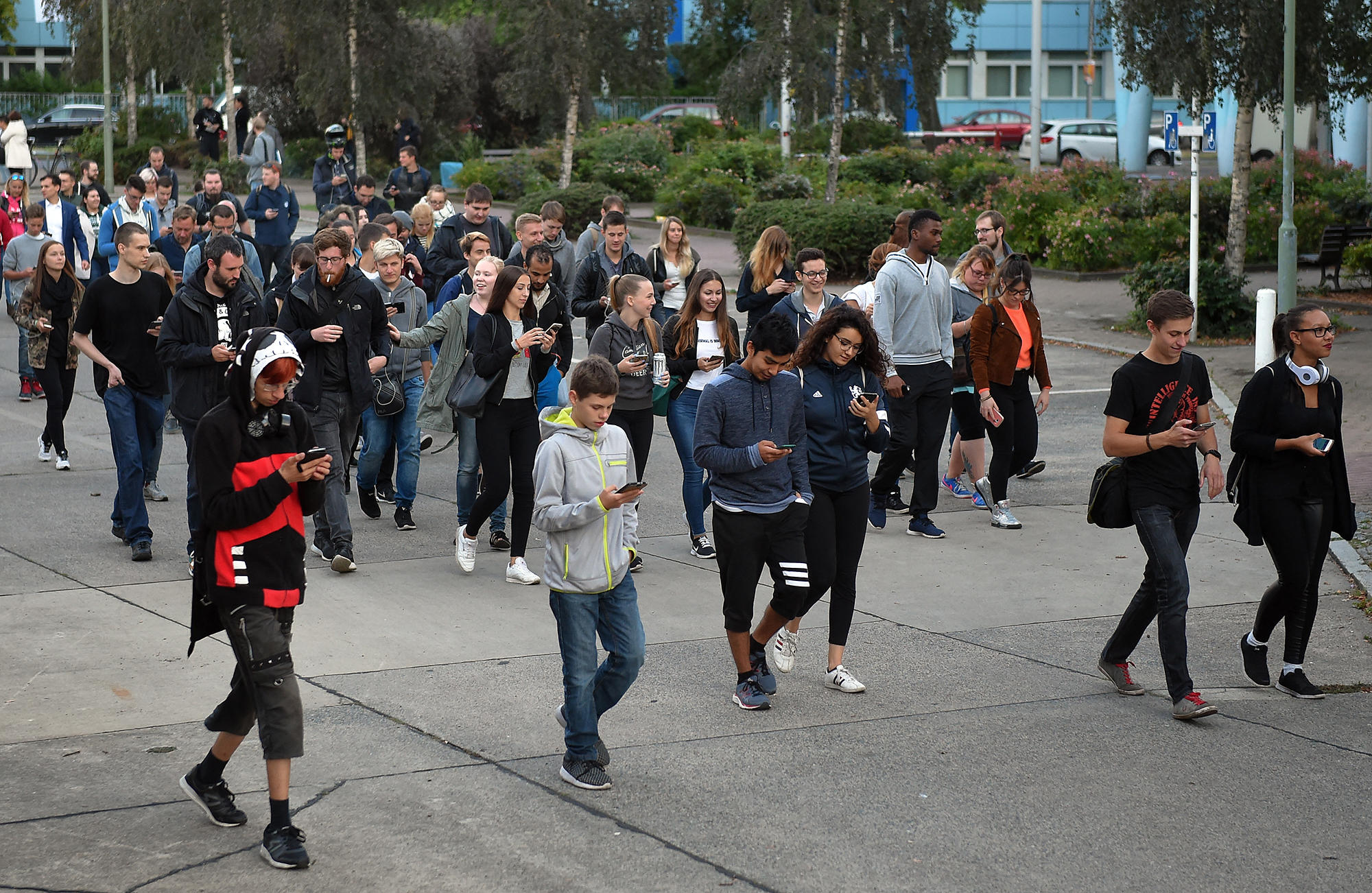You are here
The metaverse at the crossroads of illusions
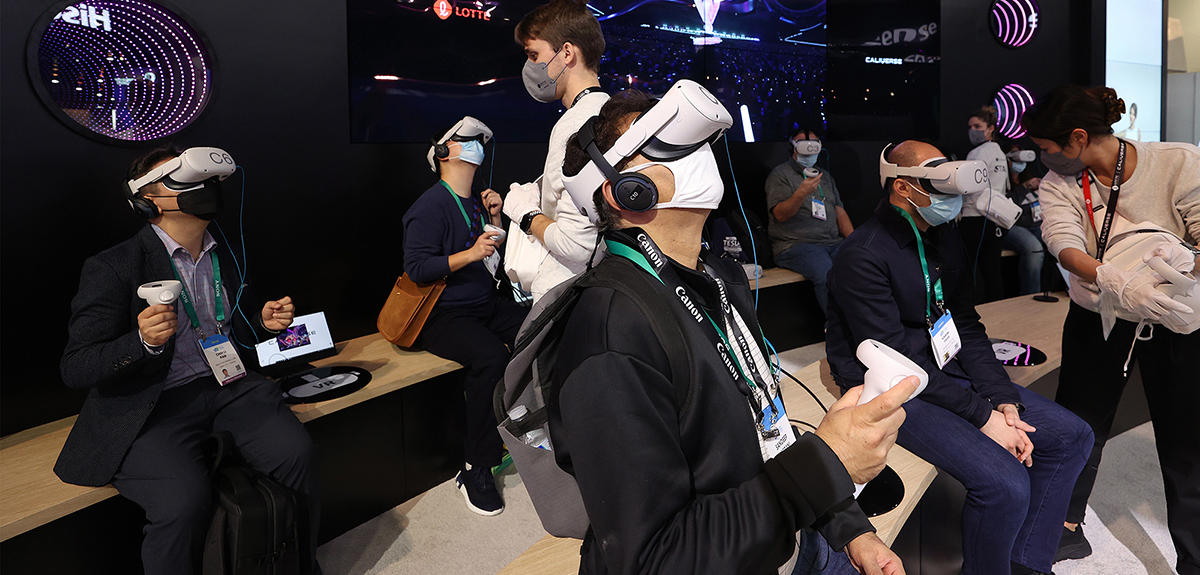
The metaverse is defined as the Internet in 3D, or immersive Internet. What are its primary characteristics in your opinion?
Michel Beaudouin-Lafon:1 The metaverse is a collaborative virtual environment. It is a 3D space in which users, represented by an avatar, can communicate with one another. Collaborative environments date back at least to the 1990s and include examples such as the DIVE system at the University of Nottingham (UK), in which avatars were present in what resembled an office, and could conduct remote meetings. More recently, Second Life enjoyed great success, not to mention the games that emerged in the 2000s, such as World of Warcraft, which can also be added to this category. These virtual environments were made popular by games, but today efforts are underway to make them into platforms for other activities.
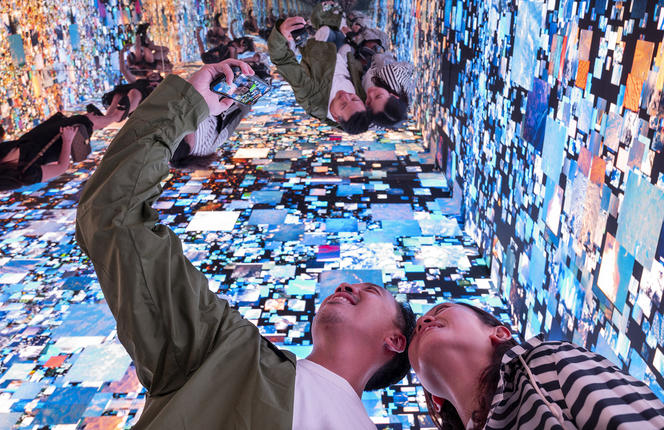
What technologies is the metaverse based on? What is innovative or revolutionary about them?
M. B.-L.: There is nothing revolutionary about them. In terms of innovation, I would say not much, since the metaverse is based on tried and tested technologies. One can access it simply using a screen and a keyboard, and preferably a virtual reality headset, the first prototypes of which date back to 1967. The goal is to give a much more realistic sensation of immersion. In addition to a headset, users hold controllers with sensors that enable their avatars to imitate their gestures. There are also devices that capture facial expressions to be reproduced by the avatar. The metaverse is based on an infrastructure of distributed computing, which allows this virtual world to be seen simultaneously by all connected users. So if I raise my hand, everyone can see my avatar raise its hand at the same time. But these technologies have their limits. Virtual reality headsets are fairly heavy, have little battery life, and a rather limited field of view, like wearing blinders. When the equipment is not of the highest quality, there is also a time-lag effect, as the movement of images does not always precisely match the users’ gestures, which can produce a sensation akin to seasickness known as ‘cybersickness’.
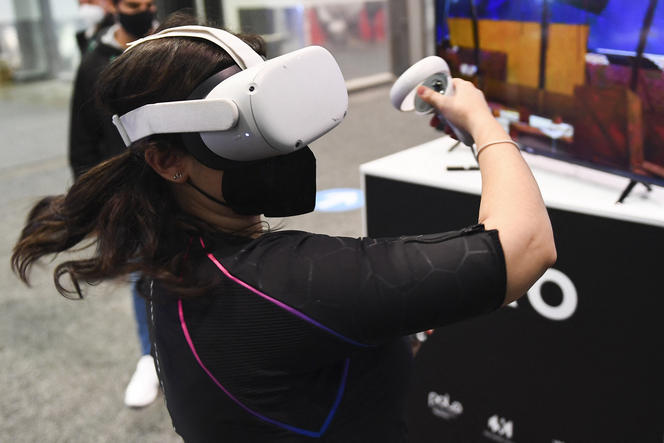
In late October, the founder of Facebook Mark Zuckerberg announced that his company would henceforth be called Meta, and provided details regarding his projects for the metaverse.2 What is his message? Why such a determined bet on virtual reality?
M. B.-L.: I am not inside Mark Zuckerberg's mind, but Facebook has been the subject of increasing criticism, especially for its role in the 2016 US election. Also, the site is losing its influence. Many young people prefer other platforms, such as Tik Tok. It is an existential fear, and they have to find something else to generate interest. The third point is surely connected to the personality of Mark Zuckerberg, who comes across as being uncomfortable with social interaction. Creating a world in which one can hide behind an avatar could be a reflection of his own anxiety. But that’s only my opinion.
Beyond the promises of its promoters, what does the metaverse look like today? What can it be used for?
M. B.-L.: What I have seen is fairly depressing and limited. For now, what Facebook has put in place is known as Horizon Worlds. It is an environment for holding office meetings that offers a very simplified universe in which people can meet and interact, with spaces similar to a virtual performance hall. The avatars look like what I call ‘the world of the Teletubbies’, or cloud cuckoo land. As the system does not capture the lower half of the body, avatars are actually floating torsos, which is rather unsettling. The functionalities are extremely limited, and facial expressions are very basic. One can handle objects, but that’s about it.
Yet according to its supporters, the metaverse is the ultimate digital revolution and should take up most of our lives, including our professional activities, leisure, purchases, and social interactions. Are the stated ambitions of certain companies disproportionate?
M. B.-L.: Indeed. I think it is quite sad. Of course there is a place for online games and activities, whether in virtual environments or not. But I believe that, having lived in isolation for two years, what people want are real activities and interaction. Take for example our face-to-face videoconference; it is much more rewarding and satisfying than if we were little figures in virtual space. I never believed that a technology like this one could take over and become the only form of communication. This discourse on the metaverse is similar to that regarding Second Life. At the time, companies set up shop on the platform, and even political parties had to have a presence, but it eventually fell into disuse. In my opinion we will see something similar here. There will probably be a boom of the metaverse, before it collapses, as was the case with 3D films. It will not disappear, but it will find its niche. For now it is hype. For example, Seoul (South Korea) wants to create a metaverse for the city's public services. Mark Zuckerberg's announcement fuelled the frenzy, but beyond that I do not have the feeling that there is great enthusiasm.
What risks does the development of the metaverse entail?
M. B.-L.: Hackers can go anywhere. They will enter the metaverse just as they did social media, and email in the form of spam. However, security issues will become very serious with regard to identity theft. The metaverse envisioned by Facebook is first and foremost intended for business; that means money, transactions, and hence financial scams.
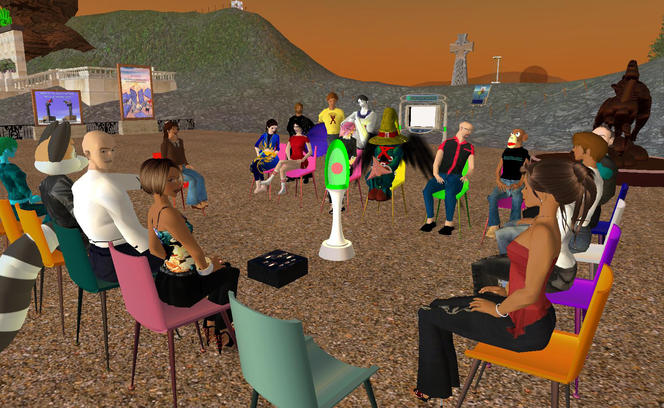
Is there also a risk of harassment?
M. B.-L.: Yes. You already see it in online games. But in an immersive virtual space, harassment will have a greater impact, since the feeling of presence is heightened. Imagine you put on your virtual reality headset and a crowd rushes at you hurling abuse. What really is problematic is that in the metaverse everything happens in real time. That’s the difference with Facebook and Twitter, which are asynchronous media: before everyone can read a publication, it has to go through both filtering algorithms and algorithmic moderation processes. This interval leaves time to react. This is not true of the metaverse: if someone is insulted, nobody has time to do anything. For that matter, we already have accounts of harassment both sexual and otherwise in Horizon Worlds, and Facebook had to create a ‘bubble’ functionality to enable users to protect themselves. Another problem is to determine whether there is a real person behind an avatar or whether it is controlled by artificial intelligence. It is quite possible that an army of avatars throwing insults are in fact robots programmed to shout abuse at users or spread fake news.
This raises the question of the effects of the metaverse on mental health.
M. B.-L.: First of all, it must be pointed out that virtual reality can be used to treat mental disorders such as agoraphobia, and that some individuals who have experienced discrimination appreciate having social interaction in environments where they are not reduced to their appearance. There are a great deal of very interesting experiments on these subjects. Technologies are generally neutral, it is their use that can become negative. The mental health effects on a person who feels rejected in the metaverse can be devastating. Addiction to these virtual spaces is also cause for concern, perhaps even more so in countries such as Japan and South Korea where many cases of addiction to video games have been observed.
With the metaverse more than ever, we put our lives in the hands of giant digital companies. How do states regulate their activities?
M. B.-L.: They are absolutely not regulated, neither with respect to the services they offer nor the research they conduct. Since the emergence of social media, not much has been done in terms of legislation. One of the problems is that most of our political representatives have no idea what it’s all about. We saw it when Zuckerberg was questioned by the US Congress: the senators read questions written for them on a piece of paper that they visibly did not understand. There is a genuine lack of information regarding what these technologies are, and how these companies function.
Unlike the early Internet, which was characterised by an anticonformist and even anarchist spirit, the metaverse has always been commercial through and through. Can we imagine a free metaverse, one that resists control by GAFAM?
M. B.-L.: I would like to think so. I believe there will be resistance, but will it succeed? I think individual countries or Europe could try to develop virtual platforms that are not in the hands of private companies, without preventing these companies from offering services on the platform. In the seventies, the French government created the Minitel network to access online services. The government would provide everyone with a free terminal, and would bill connection time through a post and telecommunications service.



This is unlikely to work today, but we must think of other business models. The one for the Internet today is driven by advertising and the collection of personal data, and this has drowned out everything else, which raises another question. Is Mark Zuckerberg's metaverse really the best model? I think it is fairly restricted, because it creates a virtual environment based on the physical world. Why recreate exactly what we already know? I think it would be more interesting to turn towards augmented reality. Instead of opaque headsets that obscure it, transparent glasses could enhance it by displaying new information. A good example is the phenomenal success of the game Pokémon Go. Its publisher, Niantic, is working on a kind of augmented reality metaverse.3 We must accept that, in the end, the physical world does not work so bad, and that it is here to stay.
- 1. Professor at the LISN interdisciplinary laboratory of digital sciences (CNRS / Université Paris-Saclay).
- 2. Marc Zuckerberg's presentation on Meta is available here (with subtitles): https://www.youtube.com/watch?v=Uvufun6xer8
- 3. https://www.theverge.com/22832490/niantic-ceo-john-hanke-metaverse-pokem..., https://nianticlabs.com/blog/real-world-metaverse/


